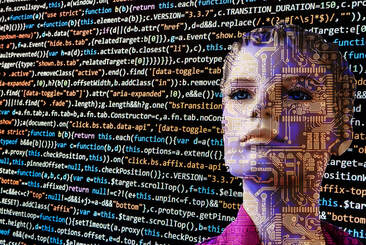
Autonomous AI, with its inherent capacity to learn and adapt, poses a unique challenge in terms of predictability. In the course of my career, I've seen technology evolve in unprecedented ways, but autonomous AI brings an entirely new dimension. These systems, designed to make decisions without human intervention, can sometimes behave in ways their developers did not foresee or intend. This unpredictability could lead to harmful or even catastrophic outcomes in high-stakes environments like healthcare, where AI might be entrusted with critical diagnoses or finance, where algorithmic trading could potentially destabilize markets.
2. The Ethical and Legal Conundrum
The dawn of autonomous AI has brought with it an entirely new set of ethical and legal dilemmas. The very autonomy that makes these systems so powerful also complicates questions of accountability. In a scenario where an AI system makes a decision that results in harm, who is responsible? The developers, the users, or the AI itself? Furthermore, how should these systems be programmed to make ethical decisions? For instance, in the case of self-driving cars, how should the AI prioritize safety if a collision is imminent? These questions underline the importance of developing robust ethical and legal frameworks for AI, a task that will require collaboration between technologists, ethicists, lawyers, and policymakers.
3. Security in the Age of AI
Security is a concern that has evolved alongside technology. In the age of autonomous AI, this issue becomes even more complex. The ability of these systems to learn and adapt can be exploited by malicious actors to manipulate the AI's behavior or to gain access to sensitive data. As an IT expert who has witnessed the evolution of cyber threats, I understand that the autonomous nature of these systems, while a strength, can also be a significant vulnerability. It is, therefore, crucial to develop advanced security measures that can keep pace with the evolving landscape of AI technology.
4. The Socio-economic Impact
The socio-economic implications of autonomous AI are vast and multifaceted. One of the most immediate concerns is job displacement. AI's potential to automate tasks currently performed by humans could lead to significant job loss. While it's true that technology often creates new job categories even as it makes others obsolete, the transition can be challenging and increase income disparity. I've seen this play out in various sectors during my years in the industry. As such, there is a pressing need for proactive measures such as worker retraining and education to prepare for a future where AI plays a more central role in our economies.
5. The Existential Risk: Fact or Fiction?
The notion of autonomous AI evolving into a "superintelligence" that surpasses human capabilities may seem like a distant concern or even the stuff of science fiction. However, it's a scenario that some researchers believe we should take seriously. The idea of an AI whose capabilities far exceed human intelligence raises profound questions about control and alignment of goals. How can we ensure that a superintelligent AI's actions align with human values? And what would it mean for humanity's role in the world if such an AI were to become a reality? These are questions that we as a society must grapple with as we continue to advance AI technology.
Conclusion: Navigating the AI Conundrum
The journey into the era of autonomous AI is indeed a path filled with both promise and challenges. Over my 23 years in the field of Information Technology, I've witnessed countless evolutions and adaptations. I've seen how innovation can drive change, solve complex problems, and create opportunities we couldn't have dreamed of a few decades ago. This gives me confidence that we can rise to the challenges that autonomous AI presents.
However, these challenges are not to be taken lightly. They are multifaceted and complex, requiring the engagement of not just technology experts, but society at large. The dialogue about the risks of autonomous AI must be inclusive and wide-ranging. We need to hear voices from all walks of life - from the developers who build these systems, to the end-users who interact with them, to the policymakers who regulate them.
Research into AI safety and ethics is a critical component of this effort. We need to invest in understanding the nuances of autonomous AI, in making these systems as predictable and controllable as possible, and in developing ethical guidelines that can help steer the development of AI in a direction that benefits humanity.
Policy will also play a crucial role in managing the risks of autonomous AI. We need laws and regulations that are informed by deep technological understanding, that protect individuals and society, and that ensure accountability. Advocacy for such robust public policy is something we can all participate in.
Education is another key piece of the puzzle. We need to ensure that current and future generations are equipped with the knowledge and skills to navigate a world where AI plays an increasingly central role. This involves not just technical education, but also education about the ethical, social, and economic implications of AI.
Finally, we must not lose sight of the potential benefits of autonomous AI. If developed and managed responsibly, these technologies could revolutionize fields like healthcare, education, and transportation among many others, and could help us tackle pressing global issues like climate change and inequality.
In closing, the era of autonomous AI holds immense promise, but also significant challenges. As we stand at this technological crossroads, the choices we make today will shape our future. Let's choose wisely.
Author
Dr. Gilberto Crespo is an information security researcher & technology expert. He has been working for more than 23 years in the information technology industries, cybersecurity, financial, higher education, and life coaching. He is also a motivational and leadership speaker.


